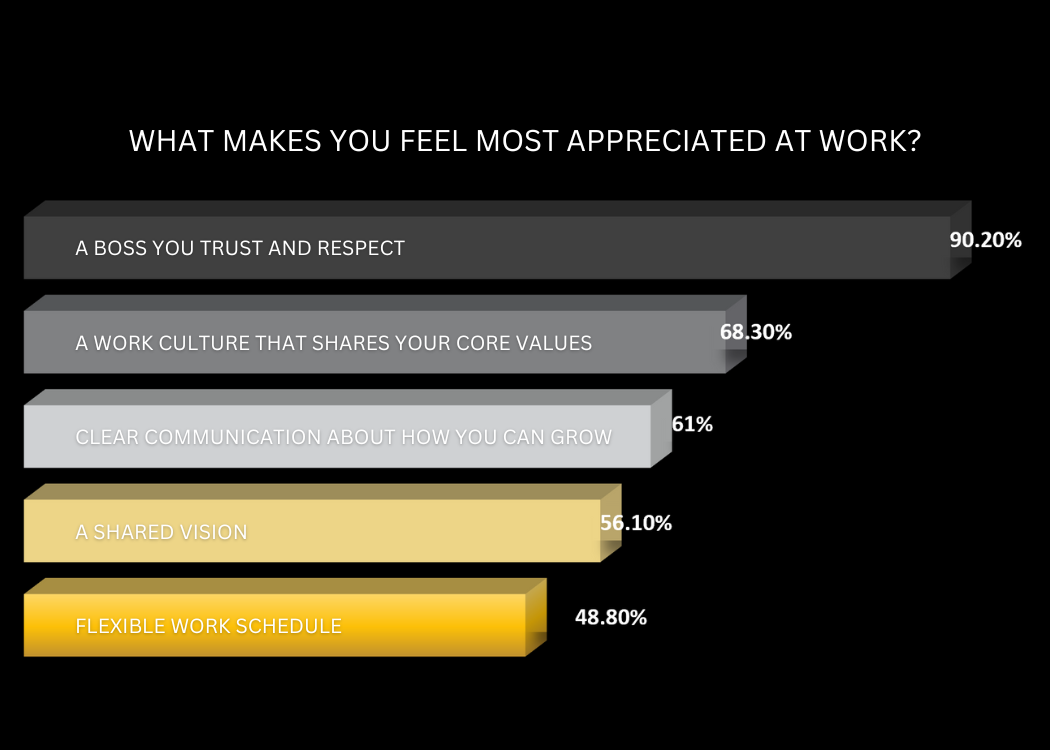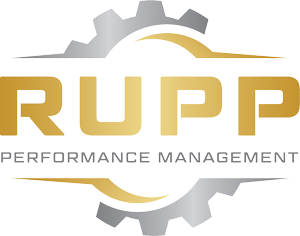Employee Value Proposition (EVP) is the balance of rewards and benefits employees receive in return for their performance at the workplace.
Selling your company’s EVP starts with telling the story of what makes your company special, including your culture, values, and vision. Will the MVPs you want to hire see value in your company culture and feel like they share in your vision?
Three of the most common EVP components that highly motivated employees look for are: a boss they trust and respect, having a clear career path, and a feeling of appreciation at the workplace.
boss
It is not surprising that one of the biggest reasons employees leave a company is because of their boss. As indicated in a recent Rupp Performance Management survey, over 90% of respondents said having a boss you can trust and respect is the number one thing that makes them feel appreciated. This stat alone should spark communication within your organization about who you promote and why, and what resources, training, and support you have available for your top leaders.

career path
MVPs want to make an impact and to see how they can grow with your company. Yes, they are initially most interested in the opportunity you have available today and whether they can add value and feel passionate about the work. However, to keep them engaged long-term, they need to see a clear career path. How can they grow with your company? How can they make an impact? In order to strengthen your company’s EVP, you should develop a career path for each and every position.
appreciation
Overall, one of the things most important to employees was feeling appreciated. Although a large part of showing appreciation is providing fair and competitive compensation and benefits, the issue is much bigger than pay alone. Money might help get MVPs in the door, but it will not keep them employed long-term if they do not feel appreciated. It really comes down to whether MVPs feel like they are valued, they have a voice and a purpose, and their opinions are heard.
